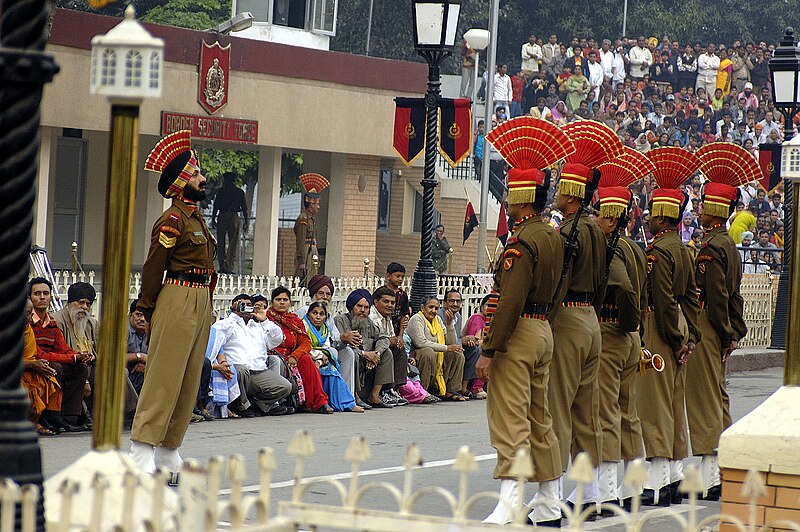The Wagah Border, situated between Pakistan and India, is a historic and iconic border crossing that holds immense cultural significance for both nations. Located near the cities of Lahore in Pakistan and Amritsar in India, the Wagah Border is known for its elaborate border closing ceremony, which has become a major tourist attraction and a symbol of the enduring rivalry and shared heritage between the two countries.

The Wagah Border was established during the partition of British India in 1947, which resulted in the creation of the independent nations of Pakistan and India. It serves as one of the few road crossings between the two countries, facilitating trade, travel, and diplomatic relations. Despite the tensions and conflicts that have characterized the relationship between Pakistan and India over the years, the Wagah Border remains open for the exchange of goods and people.
The highlight of the Wagah Border is the daily border closing ceremony, which takes place with great pomp and ceremony on both the Pakistani and Indian sides. Thousands of spectators gather on either side of the border to witness the spectacle, cheering and waving flags as soldiers from both countries engage in a carefully choreographed display of military drill, patriotic fervor, and national pride.
The ceremony typically begins with the lowering of the flags of Pakistan and India, followed by a series of synchronized movements, high kicks, and aggressive posturing by the soldiers on both sides. The atmosphere is electric, with loud patriotic music blaring from speakers, and enthusiastic cheers and chants from the crowd. The event reaches its climax with the simultaneous closing of the border gates and the lowering of the national flags, symbolizing the end of another day and the closing of the border between the two nations.
The Wagah Border closing ceremony has become a symbol of the enduring rivalry and shared heritage between Pakistan and India. Despite the tensions and conflicts that have characterized their relationship over the years, the ceremony serves as a reminder of the common cultural bonds, traditions, and aspirations that unite the people of both countries.
In addition to its cultural significance, the Wagah Border also plays a practical role in facilitating trade, travel, and diplomatic relations between Pakistan and India. Thousands of people and goods cross the border every day, contributing to the economic prosperity and development of both nations.
Overall, the Wagah Border is a unique and fascinating destination that offers visitors a glimpse into the complex and multifaceted relationship between Pakistan and India. Whether witnessing the border closing ceremony or simply experiencing the vibrant atmosphere of the area, visitors to the Wagah Border are sure to come away with a deeper understanding and appreciation of the rich cultural heritage and shared history of the region.

